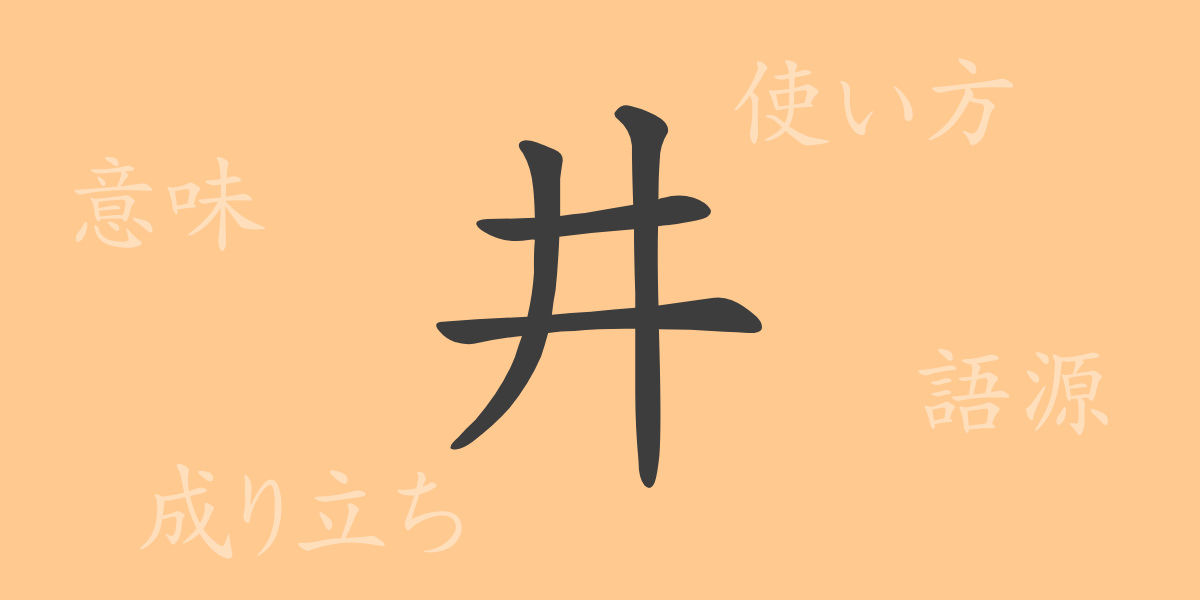In the Japanese language, numerous kanji exist, each with its unique history and meaning. One such common kanji is ‘井’ (イ), which is frequently seen in everyday life and holds a meaning that is deeply embedded in Japanese culture. This article explores the origins, meanings, applications, readings, and related phrases of the kanji ‘井’, providing a comprehensive understanding of its significance.
Origins of 井
The kanji ‘井’ originated in ancient China as a pictograph representing a well. Its form combines ‘木’ (き), indicating a division like that of paddy fields, with a central point representing water, symbolizing community wells that were central to communal living. Historically, wells were essential as community water sources and played a vital role in the settlement’s heart, illustrating the kanji’s significance in sustaining life.
Meaning and Usage of 井
While ‘井’ primarily denotes a ‘well’, it also conveys notions of order and regulation. It appears in names and place names within Japan, such as in surnames like ‘井上’ (いのうえ) and ‘井下’ (いのした), and locations like ‘井の頭公園’ (いのかしらこうえん), reflecting its ingrained presence in Japanese life.
Readings, Stroke Count, and Radical of 井
The kanji ‘井’ is notable for its simple structure yet offers multiple readings, making it a versatile character in Japanese.
- Readings: On’yomi ‘セイ’, ‘ショウ’; Kun’yomi ‘い’
- Stroke Count: ‘井’ consists of 4 strokes.
- Radical: The radical is ‘二点しんにょう’, referring to the two dots at the top of ‘井’.
Phrases, Idioms, and Proverbs Involving 井
The kanji ‘井’ features in numerous idioms and proverbs, enriching the Japanese language with its expressions:
- 井の中の蛙大海を知らず (いのなかのかわずたいかいをしらず): A proverb meaning a frog in a well does not know the great ocean, used to describe someone unaware of the larger world.
- 井戸端会議 (いどばたかいぎ): Literally “wellside meetings,” referring to casual chats among neighbors, akin to gossip sessions among women.
- 井戸を掘る (いどをほる): A metaphor for starting a new venture or business.
Conclusion on 井
The kanji ‘井’ is deeply rooted in Japanese life and culture, with applications extending from literal references to wells to metaphorical uses in names and idioms. Understanding the background of ‘井’ enhances our appreciation of its depth and significance in Japanese culture, reflecting its crucial role in both language and daily life.

























